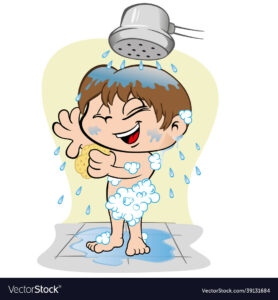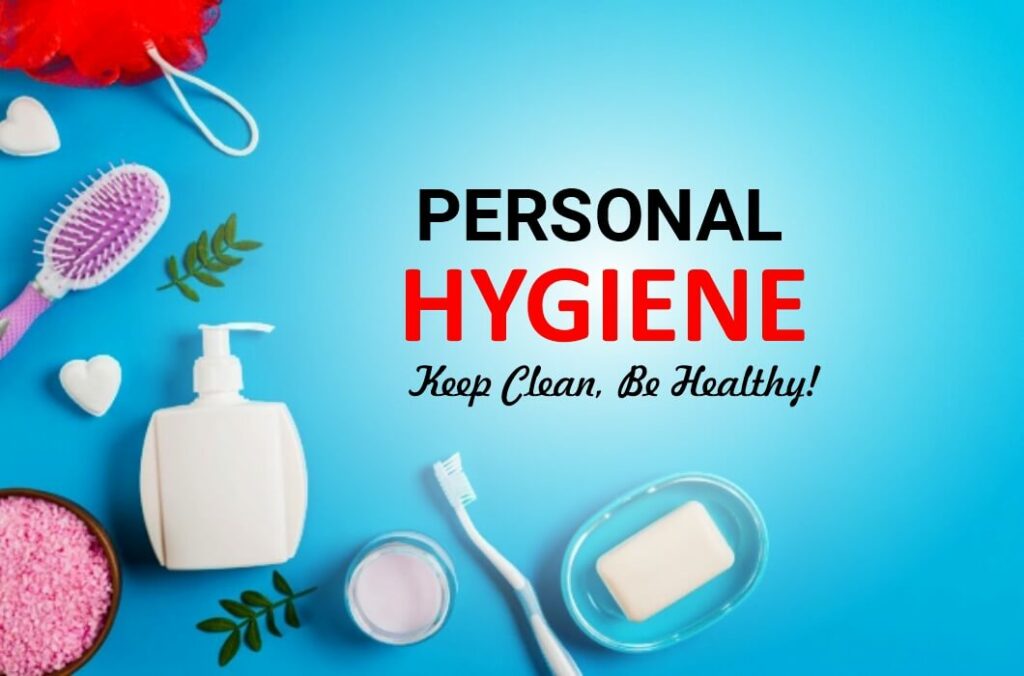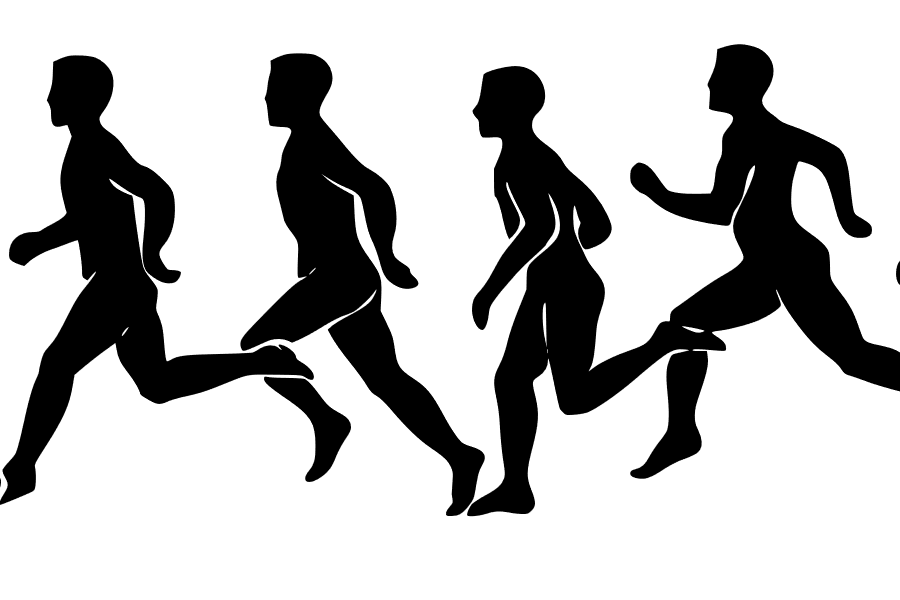When one says, “Practicing good personal hygiene is important in helping to keep the body healthy and clean,” it almost sounds like a cliché. However, in a society where common things are treated lightly, many would rather spend large sums of money on expensive pharmaceuticals than follow the simple dos and don’ts, which can go a long way towards averting long-term health problems.
In this post, we will discuss the significance of personal cleanliness. We also go through different sorts of hygiene, self-care routines, and the consequences of not practicing hygiene.
So, the major question is, why is personal hygiene important?
PERSONAL HYGIENE is described as the deliberate and consistent actions that an individual takes to ensure that he or she is free of infection from external organisms that can cause health concerns.
Personal Hygiene Benefits:
- Good personal hygiene can help both physical and mental health: a common example to be offered here, which may seem very familiar to most of us at some point in our life, is the feeling that follows after skipping a bath. First, you feel quite uncomfortable and itchy, and you realize that it is difficult to sustain normal cognitive function in that state since you are irritable and possibly angry.
- Prevention of opportunistic disease: The term opportunistic simply means something that would not ordinarily happen but now can develop owing to particular circumstances. As a result of not treating personal cleanliness seriously, infections and illnesses that would not have occurred otherwise now have a chance.
Demerits of Poor Personal Hygiene:
- In those with inadequate personal cleanliness, the body provides an ideal habitat for germs to flourish, leaving them vulnerable to infection.
- On a social level, individuals may avoid someone with poor personal hygiene, leading to isolation and loneliness.

Types of Personal Hygiene:
Though not in any particular order, these many forms of personal hygiene might serve as a pointer to areas of the body that require our undivided attention in hygienic chores.
- Dental
Dental hygiene entails more than merely having white teeth, as is commonly assumed in contemporary society. A healthy dental hygiene routine can help you avoid problems like gum disease and cavities. It can also help to prevent foul breath, which can be highly embarrassing in our day-to-day interactions with others. ‘Brush your teeth’ is a simple hygiene action to take here. At least twice daily, one should brush his or her teeth with fluoride toothpaste and avoid alternatives such as chewing sticks and charcoal, which can cause gum injury and infections, respectively.
2. Body
The human body is covered in millions of sweat glands. When bacteria break down perspiration, a scent or body odor is produced. Washing the body helps to avoid skin irritation and removes microorganisms that create body smell. Washing one’s hair removes oil and keeps one’s appearance clean and fresh.
3. Hand cleaning
Hand washing is maybe the most basic yet criminally underappreciated hygienic practice ever, and we have all been guilty at some point or another, dare I say most of the time if we are serious. The simple act of washing our hands with soap and water regularly can go a long way towards preventing the millions of diseases we contract or infect others with each year. Hand washing is one of the most effective techniques to prevent the transmission of infectious diseases.
The Centers for Disease Control and Prevention (CDC) recommends washing hands at the following times:
- before, during, and after meal preparation,
- before consuming food,
- before and following the care of anyone who is vomiting or has diarrhea,
- after going to the toilet,
- before and after treating a cut or wound,
- after changing diapers or cleaning up a toilet-using child,
- after nose blowing, coughing, or sneezing,
- after coming into contact with waste or unclean surfaces or objects,
- after the handling of pets or pet-related objects such as pet food.
In the absence of soap or disinfectant, it is advantageous to wash your hands with water than doing nothing.
4. Nails
Fingernails can hold dirt and germs, allowing bacteria to spread. Because dirt and germs accumulate more easily under longer nails, keeping them short can help limit the chance of infection spread.
How to Keep Your Hygiene:
Knowing how to maintain proper personal hygiene will help you establish a regimen. A person should be familiar with the following sorts of hygiene routines:
- Oral hygiene
- The American Dental Association (ADA) recommends brushing teeth for 2 minutes at least twice a day, once before breakfast and once before night, for a healthy mouth and smile.
- Fluoride toothpaste should be used, and toothbrushes should be replaced every 3-4 months.
- Children under the age of ten who are unable to brush correctly should be assisted by adults until they reach that age.
2. Hand cleaning
Five simple actions for efficient hand washing are outlined by the CDC Trusted Source:
- Wet your hands with running water, then turn off the water and apply soap.
- Rub the soap into the hands, being sure to reach the backs of the hands, between the fingers, and under the nails.
- For at least 20 seconds, scrub the hands.
- Rinse your hands thoroughly with clean, running water.
- Dry your hands with a clean towel or let them air dry.
And to reemphasize, in the absence of soap or disinfectant, it is preferable to wash your hands with water.
3. Body
- Showering or bathing regularly with soap and water to remove dead skin cells, oil, and bacteria is recommended.
- People should pay specific attention to sweaty areas such as the armpits, between the toes, and the groin area when bathing.
- Furthermore, ladies and men with long hair should wash their hair with shampoo at least once a week, or more if necessary.
- When completely dried, use deodorant to help reduce body smell.
- When selecting a deodorant, take care to avoid skin irritation and reaction, which can complicate and act as a doorway for infection.
4. Nails
- Using sanitized instruments, such as nail cutters, to trim and keep the nails short is one of the best ways to ensure that no dirt accumulates beneath them.
- A person’s hand-washing routine may include scrubbing the underneath of their nails using a nail brush.
5. Menstrual period and genital hygiene
- It is critical to change sanitary products regularly and to thoroughly wash your hands before and after changing tampons, pads, or other sanitary goods.
- Because vaginas self-clean, using soap to clean them might produce an imbalance of their natural bacteria, leading to infections.
- The vulva should only be cleaned once a day with light soap and warm water.
- Uncircumcised penis can be cleaned by gently drawing back the foreskin and washing underneath it with warm water or soap.
6. Hygiene education for children
- From a young age, parents and caregivers should teach their children how to keep themselves clean.

- For example, when a child reaches the age of 12 months, they can begin using toothpaste to brush their teeth.
- Encouraging children to help clean themselves as soon as they are old enough is an excellent method to establish a solid personal hygiene habit.
Factors That Can Have a Detrimental Impact On Hygiene:
- Both poverty and a lack of access to clean water can hurt a person’s hygiene. In a society where water is scarce, for example, washing hands with restricted water that could have been utilized to meet more urgent demands will be viewed as a waste of water.
- A person’s mental health might influence how they care for themselves. People suffering from disorders such as psychotic disorder, severe depression, or a drug or alcohol use problem may find it challenging to maintain a personal hygiene practice.
Conditions Poor Personal Hygiene Can Signal:
While poor personal hygiene might contribute to certain health problems, it can also be a side consequence of others.
- People suffering from Alzheimer’s disease and other forms of dementia frequently have poor overall hygiene. Adequate attention and, if possible, caretakers should be provided for this group of persons.
- In some circumstances, the inability to follow a hygiene practice may be caused by depression. Depressive symptoms, such as low energy and poor cognitive function, can make it difficult to maintain a self-care regimen. In such instances, the affected individual might be wise to consult with a psychiatrist.
The Negative Consequences Of Inadequate Personal Hygiene:
- Bad hygiene is a sensitive topic, and discussing it with someone might be difficult, for example, in the case of bad oral hygiene, which is frequent in contemporary society. As a result, someone with poor personal hygiene may grow separated from others.
- Poor personal hygiene may also have an impact on the workplace. Companies may be more willing to grant jobs and promotions to those who appear to care about their health and appearance. Poor personal hygiene can be especially problematic in the food sector, where strict sanitary procedures must be followed at all times.
- Poor personal cleanliness has numerous health consequences, with the CDC Trusted Source citing the following as hygiene-related diseases:
- athlete’s foot
- body lice
- chronic diarrhea
- tooth decay
- head lice
- hot tub rash
- pinworms
- pubic lice
- scabies
- swimmer’s ear
- ringworm
Routine Hygiene Tips:
The following are some helpful hints for developing a hygiene routine:
- Make it a habit: With consistent practice, a new habit might become a permanent part of your life. Choose one area to concentrate on and work on it until it becomes second nature.
- Make a note of it: A cell phone’s Reminder or Alarm app can be an excellent tool to avoid forgetting any tasks.
- Use incentives: A snack reward for following hygiene procedures can be an excellent motivator for children to maintain their hygiene.
Summary:
- Keeping one’s body clean benefits one’s social life as well as one’s physical and mental well-being.
- Simply said, hygiene is taking care of one’s body and keeping it clean and healthy.
- Creating and sticking to a personal hygiene routine is essential for maintaining a healthy body and mind.



